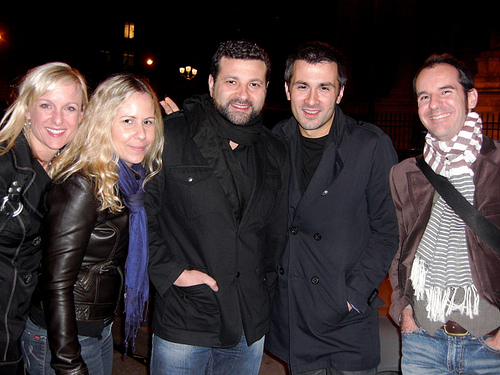Marketing 2.0 – Day 2 highlights
Over the last few years, social media has had a huge impact on my life. From discovering blogs to meeting a tremendous amount of very interesting people through social networking (to the extent of quitting my last job to work in social media!). And the two days at the Marketing 2.0 conference were no different to this – it was a chance to meet in real life the people I was already connected to through social media; hence the very late night with @luckthelady, @branislavperic, @digitalizer, @armano and @fredcavazza which Robin kindly pointed out on Wednesday morning…

Photo: Luck the Lady
The second day of the Marketing 2.0 started on with a very interesting talk about Micro Interactions by David Armano. Ever experienced a Micro Interaction? Micro Interactions can take various forms. For example, you say something about a brand online and turns out the brand was listening to you and, even better, they respond, and you’re amazed?! Yes, as you can see, this is one of the things we do with Skype and, as David Armano was pointing out, because people would rather talk to people than brands, Twitter is a way to offer an alternative to annoying automated customer services and interact as a human with individuals. Still according to David, this is where you see the concept of ‘brandividuals’ appearing – take Scott Monty for example: on Twitter, in addition to being ‘a husband, dad and generally a nice guy’, @ScottMonty is the human face of Ford; he’s a brandividual, the individual who enables a direct engagement with the Ford brand.
But back to ‘micro interactions’. In some ways, the following speaker, Stephen Eric from Crispin Porter + Bogusky also touched on the ‘micro interactions’ subject with the concept of small [micro] ideas: ‘start small, experiment, explore multiple ideas, find a momentum’. A very inspiring talk in this area of economic recession: Stephen insisted that ‘small ideas [micro ideas] take the pressure of big ideas’ and he illustrated this with the whole ‘King’ idea for Burger King: it was supposed to be a one off, the client approved it because it was a small idea. Nowadays, the King is a success which has even featured in video games.
Another very interesting talk was the one of Jeremy Dumont, Strategy Planning Manager at Pourquoi Tu Cours, about 2009 trends like the concepts of open identity (your life is public online), co-construction identity (your friends take part in your identity through comments), acting identity (you are what you do – Twitter, Facebook statuses), but also with a new sense of proximity with people like us (they’re not your friends, you might have never met them but you share something, a passion, a subject and you engage with them through online networks).
I have to say I very much like the concept of ‘Acting Identity’: ‘You Are What You Do’ is probably the way I will explain Twitter nowadays!